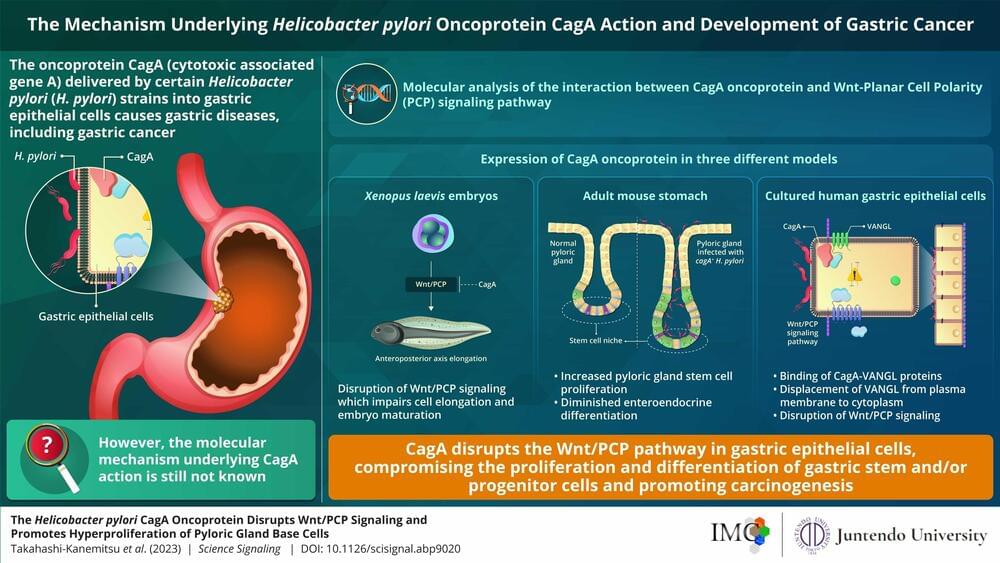Helicobacter pylori (H. pylori) infections are commonly associated with abdominal pain, bloating, and acidity. Clinical evidence suggests that infection with H. pylori cagA+ strains dramatically increases the risk of developing gastric cancer.
A specialized protein delivered by H. pylori to the host, oncoprotein “CagA,” has been shown to interact with multiple host proteins and promote gastric carcinogenesis (transformation of normal cells to cancer cells). However, the underlying mechanisms associated with its biochemical activity have not been fully determined yet.
A new study published in Science Signaling on 18 July insights into the additional mechanism of oncogenic CagA action.









Comments are closed.